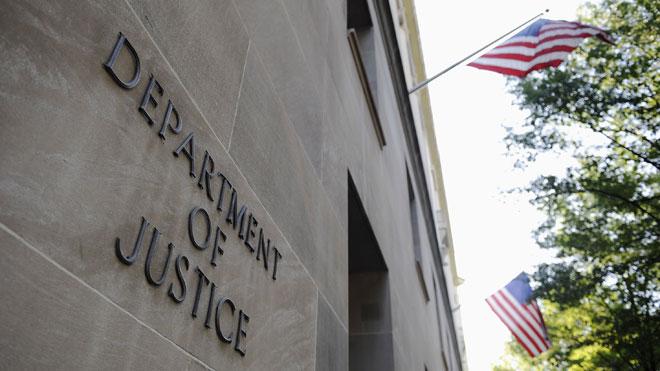T-Mobile-Sprint lean on 5G to sell $26 billion deal and it may backfire
The U.S. Department of Justice and the Federal Communications Commission’s approval of the $26 billion T-Mobile-Sprint merger is far from a slam dunk, despite the fact the two companies are purportedly working together to optimally combine assets, sources familiar with the matter tell FOX Business. The DOJ is still probing the deal over antitrust concerns and policy staff has yet to make a formal recommendation to Assistant Attorney General for the Antitrust Division, Makan Delrahim, about the deal.
While media analysts have grown more optimistic that the deal will close and say the chances for antitrust approval have increased since the deal was initially announced in April 2018, some with knowledge of the DOJ’s decision making process are less sanguine about the deal’s future.
In filings, in statements, and in comments made to Congress and CFIUS (Committee on Foreign Investment in the United States), the two telecom providers have relied heavily on the argument that combining T-Mobile and Sprint will enable the U.S. to compete with Huawei, a Chinese telecommunications company, in building out a 5G network—next generation wireless technology.
The move comes at a critical time for U.S. – China relations which are strained. The U.S. has eschewed Huawei’s services domestically and has publicly stated they will not use Huawei’s network to communicate. Last week Secretary of State Mike Pompeo warned countries about the consequences of doing business with Huawei. “If a country adopts this and puts it in some of their critical information systems, we won’t be able to share information with them,” said Pompeo to FOX Business’ Maria Bartiromo. “In some cases there’s risk -- we won’t even be able to co-locate American resources, an American embassy and American military outpost.”
| Ticker | Security | Last | Change | Change % |
|---|---|---|---|---|
| S | SENTINELONE INC | 13.14 | -0.08 | -0.61% |
| TMUS | T-MOBILE US INC. | 197.66 | +0.27 | +0.14% |
If approved, the merger may indeed help the U.S. speed up 5G development; however, 5G plays no role in winning antitrust approval. DOJ is focused exclusively on whether the newly merged company could hurt consumers of wireless services and whether the deal will impact consumer prices. According to a source familiar with the matter, “A company can’t enter into an anti-competitive deal to compete in a new market.”
T-Mobile CEO John Legere appeared to respond to DOJ scrutiny in a letter to FCC Chairman Ajit Pai by promising the company would not raise prices: “New -Mobile will make available the same or better rate plans for our services as those offered today by T-Mobile or Sprint. . . We believe this merger makes consumers better off, and we’re willing to put our money where our mouth is. Period.” The statement addresses concerns the merger will hurt consumers but it was viewed by one analyst as an indication Legere is getting “a bit desperate.”
In a statement to FOX Business, a DOJ Spokesman commented, “The Antitrust Division has made no conclusions at this time, as our investigation and evaluation of proposed efficiencies continues.” T-Mobile did not immediately respond to a request for comment.
CLICK HERE TO GET THE FOX BUSINESS APP
T-Mobile initially expected the deal to close in the first half of 2019. It’s unclear when the FCC and DOJ will announce a decision, but the announcement could come as soon as next month.




















